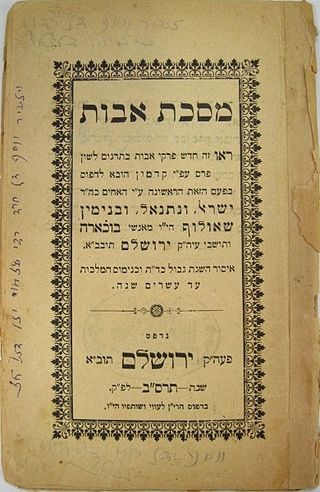An idiom is a phrase or expression that largely or exclusively carries a figurative or non-literal meaning, rather than making any literal sense. Categorized as formulaic language, an idiomatic expression's meaning is different from the literal meanings of each word inside it. Idioms occur frequently in all languages; in English alone there are an estimated twenty-five thousand idiomatic expressions. Some well known idioms in English are spill the beans, it's raining cats and dogs, and break a leg.

A double entendre is a figure of speech or a particular way of wording that is devised to have a double meaning, one of which is typically obvious, and the other often conveys a message that would be too socially unacceptable, or offensive to state directly.

A figure of speech or rhetorical figure is a word or phrase that intentionally deviates from straightforward language use or literal meaning to produce a rhetorical or intensified effect. In the distinction between literal and figurative language, figures of speech constitute the latter. Figures of speech are traditionally classified into schemes, which vary the ordinary sequence of words, and tropes, where words carry a meaning other than what they ordinarily signify.
In rhetoric, litotes, also known classically as antenantiosis or moderatour, is a figure of speech and form of irony in which understatement is used to emphasize a point by stating a negative to further affirm a positive, often incorporating double negatives for effect. A form of understatement, litotes can be in the form of meiosis, and is always deliberate with the intention of emphasis. However, the interpretation of negation may depend on context, including cultural context. In speech, litotes may also depend on intonation and emphasis; for example, the phrase "not bad" can be intonated differently so as to mean either "mediocre" or "excellent". Along the same lines, litotes can be used, to euphemistically provide emphasis by diminishing the harshness of an observation; "He isn't the cleanest person I know" could be used as a means of indicating that someone is a messy person.

Chengyu are a type of traditional Chinese idiomatic expressions, most of which consist of four Chinese characters. Chengyu were widely used in Literary Chinese and are still common in written vernacular Chinese writing and in the spoken language today. According to the most stringent definition, there are about 5,000 chengyu in the Chinese language, though some dictionaries list over 20,000. Chengyu are considered the collected wisdom of the Chinese culture, and contain the experiences, moral concepts, and admonishments from previous generations of Chinese speakers. Chengyu still play an important role in Chinese conversation and education. Chinese idioms are one of four types of formulaic expressions, which also include collocations, two-part allegorical sayings called xiehouyu, and proverbs.
A cliché is a saying, idea, or element of an artistic work that has become overused to the point of losing its original meaning, novelty, or figurative or artistic power, even to the point of now being bland or uninteresting. In phraseology, the term has taken on a more technical meaning, referring to an expression imposed by conventionalized linguistic usage.
Pleonasm is redundancy in linguistic expression, such as in "black darkness," "burning fire," "the man he said," or "vibrating with motion." It is a manifestation of tautology by traditional rhetorical criteria. Pleonasm may also be used for emphasis, or because the phrase has become established in a certain form. Tautology and pleonasm are not consistently differentiated in literature.
An aphorism is a concise, terse, laconic, or memorable expression of a general truth or principle. Aphorisms are often handed down by tradition from generation to generation.

Herbert Paul Grice, usually publishing under the name H. P. Grice, H. Paul Grice, or Paul Grice, was a British philosopher of language who created the theory of implicature and the cooperative principle, which became foundational concepts in the linguistic field of pragmatics. His work on meaning has also influenced the philosophical study of semantics.

Pirkei Avot, which translates to English as Chapters of the Fathers, is a compilation of the ethical teachings and maxims from Rabbinic Jewish tradition. It is part of didactic Jewish ethical literature. Because of its contents, the name is sometimes given as Ethics of the Fathers. Pirkei Avot consists of the Mishnaic tractate of Avot, the second-to-last tractate in the order of Nezikin in the Mishnah, plus one additional chapter. Avot is unique in that it is the only tractate of the Mishnah dealing solely with ethical and moral principles; there is relatively little halakha (laws) in Pirkei Avot.
In social science generally and linguistics specifically, the cooperative principle describes how people achieve effective conversational communication in common social situations—that is, how listeners and speakers act cooperatively and mutually accept one another to be understood in a particular way.

Owing to its origin in ancient Greece and Rome, English rhetorical theory frequently employs Greek and Latin words as terms of art. This page explains commonly used rhetorical terms in alphabetical order. The brief definitions here are intended to serve as a quick reference rather than an in-depth discussion. For more information, click the terms.
In philosophy—more specifically, in its sub-fields semantics, semiotics, philosophy of language, metaphysics, and metasemantics—meaning "is a relationship between two sorts of things: signs and the kinds of things they intend, express, or signify".
A phraseme, also called a set phrase, fixed expression, multiword expression, or idiom, is a multi-word or multi-morphemic utterance whose components include at least one that is selectionally constrained or restricted by linguistic convention such that it is not freely chosen. In the most extreme cases, there are expressions such as X kicks the bucket ≈ ‘person X dies of natural causes, the speaker being flippant about X’s demise’ where the unit is selected as a whole to express a meaning that bears little or no relation to the meanings of its parts. All of the words in this expression are chosen restrictedly, as part of a chunk. At the other extreme, there are collocations such as stark naked, hearty laugh, or infinite patience where one of the words is chosen freely based on the meaning the speaker wishes to express while the choice of the other (intensifying) word is constrained by the conventions of the English language. Both kinds of expression are phrasemes, and can be contrasted with ’’free phrases’’, expressions where all of the members are chosen freely, based exclusively on their meaning and the message that the speaker wishes to communicate.
A Scotticism is a phrase or word, used in English, which is characteristic of Scots.

An idiom is a common word or phrase with a figurative, non-literal meaning that is understood culturally and differs from what its composite words' denotations would suggest; i.e. the words together have a meaning that is different from the dictionary definitions of the individual words. By another definition, an idiom is a speech form or an expression of a given language that is peculiar to itself grammatically or cannot be understood from the individual meanings of its elements. For example, an English speaker would understand the phrase "kick the bucket" to mean "to die" – and also to actually kick a bucket. Furthermore, they would understand when each meaning is being used in context.
Filipino proverbs or Philippine proverbs are traditional sayings or maxims used by Filipinos based on local culture, wisdom, and philosophies from Filipino life. The word Sawikain proverb corresponds to the Tagalog words salawikain, kasabihan (saying) and sawikain, and to the Ilocano word sarsarita. Proverbs originating from the Philippines are described as forceful and poetic expressions and basic forms of euphemisms. If used in everyday conversations, proverbs are utilized to emphasize a point or a thought of reasoning: the Filipino philosophy. One notable and locally popular example of a Filipino proverb is this: A person who does not remember where he (she) came from will never reach his (her) destination. Of Tagalog origin, it conveys and urges one person to give "importance in looking back at one’s roots and origins." The maxim also exemplifies a Filipino value known as the "utang na loob", one’s "debt of gratitude" to the persons who have contributed to an individual’s success. Damiana L. Eugenio, a professor from the University of the Philippines, author of Philippine Proverb Lore (1975), and who is also referred to as the "Mother of Philippine Folklore" grouped Filipino proverbs into six categories based on the topic expressed, namely: ethical proverbs, proverbs that recommend virtues and condemn vices, proverbs that express a system of values, proverbs that express general truths and observations about life and human nature, humorous proverbs, and miscellaneous proverbs.

The phrase "when pigs fly" is an adynaton—a figure of speech so hyperbolic that it describes an impossibility. The implication of such a phrase is that the circumstances in question will never occur. The phrase has been used in various forms since the 1600s as a sarcastic remark.

It takes two to tango is a common idiomatic expression which suggests something in which more than one person or other entity are paired in an inextricably-related and active manner, occasionally with negative connotations.
An idiom is a syntactical, grammatical, or phonological structure peculiar to a language that is actually realized, as opposed to possible but unrealized structures that could have developed to serve the same semantic functions but did not.








